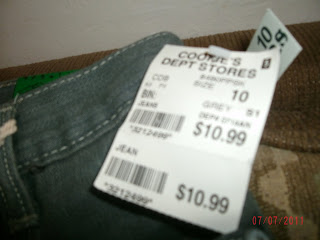
Grant Blankenship for The New York Times
Terry Pickle climbs out of the hole in Colquitt, Ga., that was once the spot on Spring Creek where river baptisms were held. Drought conditions have reduced the creek to a series of puddles.
COLQUITT, Ga. — The heat and the drought are so bad in this southwest corner of Georgia that hogs can barely eat. Corn, a lucrative crop with a notorious thirst, is burning up in fields. Cotton plants are too weak to punch through soil so dry it might as well be pavement.
Farmers with the money and equipment to irrigate are running wells dry in the unseasonably early and particularly brutal national drought that some say could rival the Dust Bowl days.
“It’s horrible so far,” said Mike Newberry, a Georgia farmer who is trying grow cotton, corn and peanuts on a thousand acres. “There is no description for what we’ve been through since we started planting corn in March.”
The pain has spread across 14 states, from Florida, where severe water restrictions are in place, to Arizona, where ranchers could be forced to sell off entire herds of cattle because they simply can’t feed them.
In Texas, where the drought is the worst, virtually no part of the state has been untouched. City dwellers and ranchers have been tormented by excessive heat and high winds. As they have been in the southwest, wildfires are chewing through millions of acres.
Last month, the United States Department of Agriculture designated 213 of the 254 counties in Texas as natural-disaster areas. More than 30 percent of the state’s wheat fields might be lost, adding pressure to a crop in short supply globally.
Even if weather patterns shift and relief-giving rain comes, losses will surely head past $3 billion in that state alone, Texas agricultural officials said.
Most troubling is that the drought, which could go down as one of the nation’s worst, has come on extra hot and extra early. It has its roots in 2010 and continued through the winter. The five months from this February to June, for example, were so dry that they shattered a Texas record set in 1917, said Don Conlee, the acting state climatologist.
Oklahoma has had only 28 percent of its normal summer rainfall and the heat has blasted past 90 degrees for a month.
“We’ve had a two- or three-week start on what is likely to be a disastrous summer,” said Kevin Kloesel, director of the
Oklahoma Climatological Survey.
The question, of course, becomes why. In a spring and summer in which weather news has been dominated by epic floods and
tornadoes, it is hard to imagine that nearly a third of the country is facing an equally daunting but very different kind of natural disaster.
From a meteorological standpoint, the answer is fairly simple. “A strong La Niña shut off the southern pipeline of moisture,” said David Miskus, who monitors drought for the
National Oceanic Atmospheric Administration.
The weather pattern called
La Niña is an abnormal cooling of Pacific waters. It usually follows
El Niño, which is an abnormal warming of those same waters.
Although a newly released forecast from the National Weather Service’s
Climate Prediction Center suggests this dangerous weather pattern could revive in the fall, many in the parched regions find themselves in the unlikely position of hoping for a season of heavy tropical storms in the Southeast and drenching monsoons in the Southwest.
Climatologists say the great drought of 2011 is starting to look a lot like the one that hit the nation in the early to mid-1950s. That, too, dried a broad swath of the southern tier of states into leather and remains a record breaker.
But this time things are different in the drought belt. With states and municipalities strapped for cash and unemployment still high, the stress on the land and the people who rely on it for a living is being amplified by political and economic forces, state and local officials say.
As a result, this drought is likely to have the cultural impact of the great 1930s drought, which hammered an already weakened nation.
“In the ’30s, you had the Depression and everything that happened with that, and drought on top,” said Donald A. Wilhite, director of the school of natural resources at the University of Nebraska in Lincoln and former director of the National Drought Mitigation Center. “The combination of those two things was devastating.”
Although today’s economy is not as bad, many Americans ground down by prolonged economic insecurity have little wiggle room to handle the effects of a prolonged drought. Government agencies are in the same boat.
“Because we overspent, the Legislature overspent, we’ve been cut back and then the drought comes along and we don’t have the resources and federal government doesn’t, and so we just tighten our belt and go on,” said Donald Butler, the director of the Arizona Department of Agriculture.

















What's Driving Food Price Hikes?
Is U.S. Headed toward Hyperinflation?
What to Do if Hyperinflation Does Become a Reality
Avoid Personal Financial Ruin by Staying Healthy!